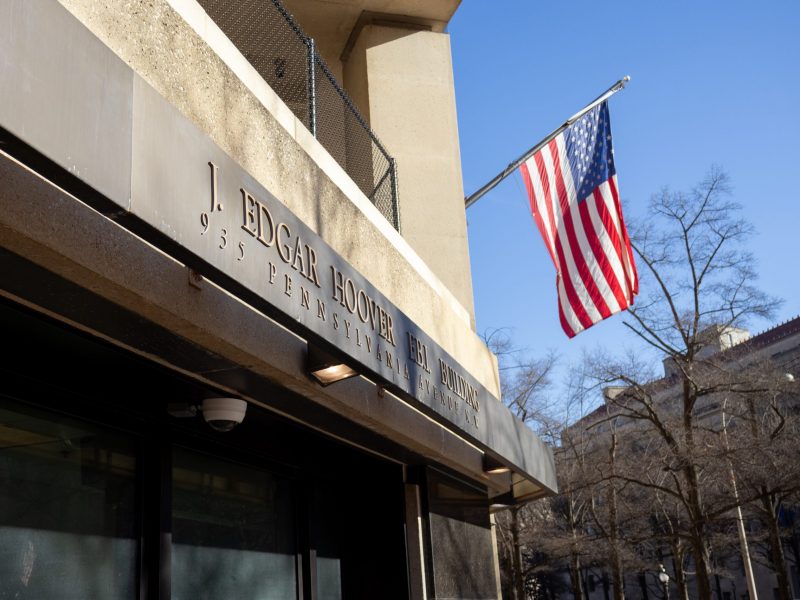Lawmakers in Maryland are fast-tracking legislation to confront the state’s growing issues with overdoses on fentanyl – a powerful synthetic opioid that has been associated with more fatal drug overdoses in the last two years in the state than any other substance.
According to the National Institute on Drug Abuse, deaths involving synthetic opioids – primarily fentanyl – are rising across the country. More than 70,000 deaths related to synthetic opioids were reported in 2021. The U.S. Department of Health and Human Services found that since 1999, the number of these deaths have increased 97-fold.
Several bills proposed in the Maryland General Assembly this legislative session aim to address this growing crisis on a state level. One bill making its way through the House of Delegates would increase the state’s ability to test for fentanyl presence in urine tests and other methods used to detect the fatal substance. Another in the state Senate would increase penalties for distribution of fentanyl-like substances.
Del. Joe Vogel, a Democrat representing Montgomery County, introduced a bill to the House of Delegates in February that would require hospitals to conduct a fentanyl test for patients with a known or suspected overdose.
Currently, hospitals use basic urine tests to detect chemicals in certain drugs, but do not typically check for the presence of fentanyl. Recent research from the University of Maryland’s Center for Substance Abuse Research found most emergency departments only screen 5 percent of overdose patients for fentanyl, which can lead to an undercount in the severity of fentanyl usage in Maryland.
At the bill’s hearing on Feb. 23, Vogel was joined by several Marylanders who lost loved ones to fentanyl overdoses and were not tested for the drug’s presence in their system at the hospital.
[Maryland General Assembly considers health education, parental rights bills]
Melanie Yates, who lost her partner to a fentanyl overdose last year, emphasized to legislators the importance of this data collection in the medical system.
“If we are not routinely testing for fentanyl, then we are vastly undercounting the number of fatal and nonfatal fentanyl related overdoses that are happening in our state,” Yates told the health and government operations committee during the bill’s hearing. “This bill is a simple and logical step we can take towards addressing the fentanyl crisis in Maryland.”
Having data about fentanyl overdoses will allow the state to better understand what communities and demographics are most impacted by the drug and help hospitals forecast overdoses, Vogel said.
A 2021 study conducted in partnership with the National Institute on Drug Abuse found that Black opioid deaths are increasing at a faster rate than white opioid deaths. These deaths in Black communities are primarily caused by fentanyl.
Juli Shamash’s son Tyler Shamash was 19 when he fatally overdosed on fentanyl. However, the drug did not appear on tests run by the hospital. Since her son’s death, Shamash has been advocating for fentanyl tests to be given to overdose patients.
“This bill will save lives,” Juli Shamash stressed during the hearing.
The Maryland bill is modeled after one Shamash fought for in California. Tyler’s Law, which went into effect in California on Jan. 1, requires hospitals to include fentanyl when doing a urine drug screening.
Vogel noted that preventing fentanyl deaths is a bipartisan issue impacting Marylanders across the state. Co-sponsors of the bill include both Democrats and Republicans.
[Maryland General Assembly bill would create service year option for high school graduates]
Another bill in the Senate would increase the maximum term of imprisonment for manufacturing, intending to distribute or distributing substances containing fentanyl or fentanyl analogues – alterations of fentanyl that have a similar chemical structure and mimic the drug’s effects – from 10 years to 20 years.
Currently, people who distribute fentanyl on its own can face up to 20 years in prison. Sen. William Folden, a Republican representing parts of Frederick County and one of the bill’s sponsors, said during the bill’s hearing that fentanyl mixtures are just as deadly and should be treated the same as fentanyl on its own.
Montgomery County State’s Attorney John McCarthy spoke in support of the bill at its hearing. Nearly a dozen students in Montgomery County Public Schools have overdosed during the 2022-2023 school year, he said.
“The people that are selling drugs are literally killing our children,” he told the judicial proceedings committee Tuesday.
Debbie Santini, whose son died of fentanyl poisoning last year, told the committee she thinks people who sell fentanyl need to be sentenced to more than 20 years. However, the bill’s current extension of penalty time is a start, she said.
“It won’t bring my child back, but it just may save one of yours,” she said.



